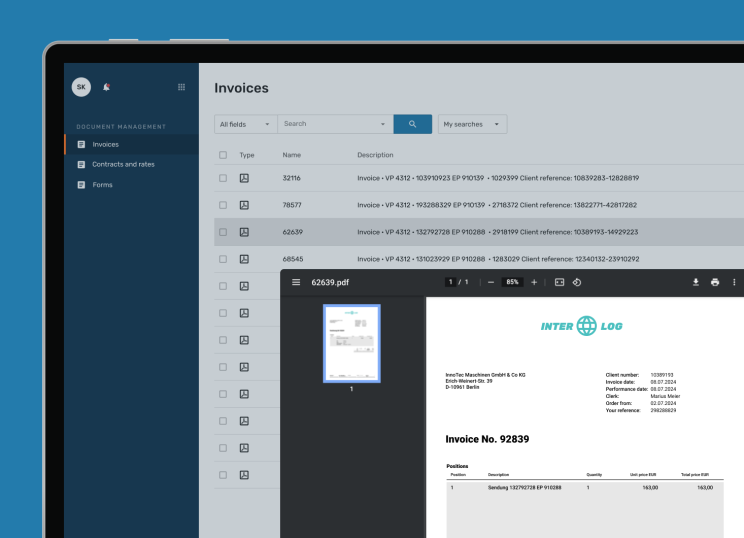Frequently asked questions
We set up the categories in which you want to organise your documents according to your wishes. Most of our customers differentiate between proofs of delivery, delivery notes, invoices, contracts, rate sheets and internal company documents.
You can use the rights/roles system to ensure that users can only access documents that they are authorised for.
You can easily link EIKONA Document Management with the EIKONA Digital Archiving module. That way, you can store all content in an audit-proof manner. This allows you to comply with the legally required archiving periods and retrieve documents from your digital repository at any time.
Digital archiving is subject to strict rules, such as those on document immutability. Document management, in contrast, is a contextual operational system that facilitates workflow in day-to-day business. The EIKONA Digital Archiving module references all the data to orders and stores it in an audit-proof manner. That means the data can also be accessed from EIKONA Track and Trace. In EIKONA Document Management, on the other hand, service providers can store and share documents (records of damages, etc.) with clients.
